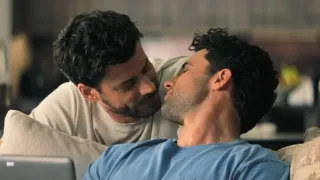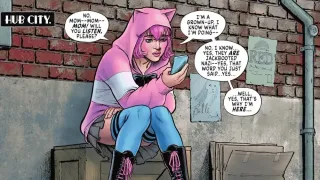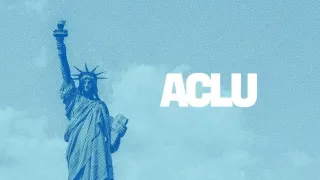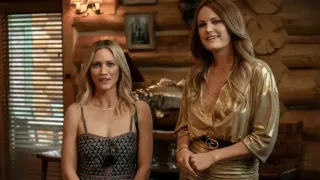September 8, 2024
Watch: DC Couple Assaulted by Shake Shack Staff for PDA in Restaurant
READ TIME: 3 MIN.
A gay couple was assaulted for a PDA at the Shake Shack in queer-friendly Dupont Circle in Washington DC on Saturday night, NBC News reports.
"A gay man accused a group of Washington, D.C., Shake Shack employees of beating him after he kissed his boyfriend inside the location while waiting for their order," NBC reports.
Christian Dingus, 28, was with his partner and a group of friends at a Dupont Circle location Saturday night when the incident occurred, he told NBC News. They had put in their order and were hanging around waiting for their food.
"And while we were back there – kind of briefly – we began to kiss," Dingus said. "And at that point, a worker came out to us and said that, you know, you can't be doing that here, can't do that type of stuff here."
The pair separated, but his partner confronted the employee saying they did nothing wrong. At this point, the Shake Shack employee allegedly escorted the man outside the restaurant where they had a heated argument. When Dingus told the employee not to speak to his boyfriend that way, other Shake Shack employees who had followed the couple outside turned to him.
"And then one of the men, pretty forcefully, like, pushed me out of the way on my shoulder," Dingus said. "And then, you know, next thing I know, that kind of just, I think, sparked the rest of them. ... They all just kind of started attacking me at that point, dragging me back through the floor and continuously punching me in my head."
A restaurant patron filmed the event and later gave it to Dingus. It shows a man being shoved as two others in Shake Shack T-shirts punch at his head. Two more men in Shake Shack T-shirts appear, but it is unclear what happened next.
The 30-second clip does not show what happened prior to the violence or include any audio.
"There was a desire to be violent towards me, and I think it's very evident in that film," Dingus told NBC News.
After the attack, Dingus was taken to the emergency room where he had a concussion and trauma to his jaw, he said. He also had swelling and bruising on his face, reports The Independent.
"The incident is being investigated as a hate crime, according to the Metropolitan Police Department, who has classified the offense alleged by Dingus as a simple assault, with an anti-gay bias motivation. No arrests have been made."
"You hear all the time that this stuff happens, but, you know, I started kind of believing that it didn't, right?" Dingus said. "I've been ... thinking of progress and how great that community is here, and then for that all to kind of be shattered, you know, kind of sucks."
A Shake Shack spokesperson told NBC News that the employees allegedly involved have been suspended pending further review and that the company is cooperating with authorities.
"At Shake Shack, the safety and well-being of our guests and team members are our top priorities, and we have a zero-tolerance policy for any form of violence," the spokesperson said in a statement.
"We are aware of the incident on Saturday, Aug. 17 involving team members and a guest at our Dupont Circle location and are taking it very seriously."






